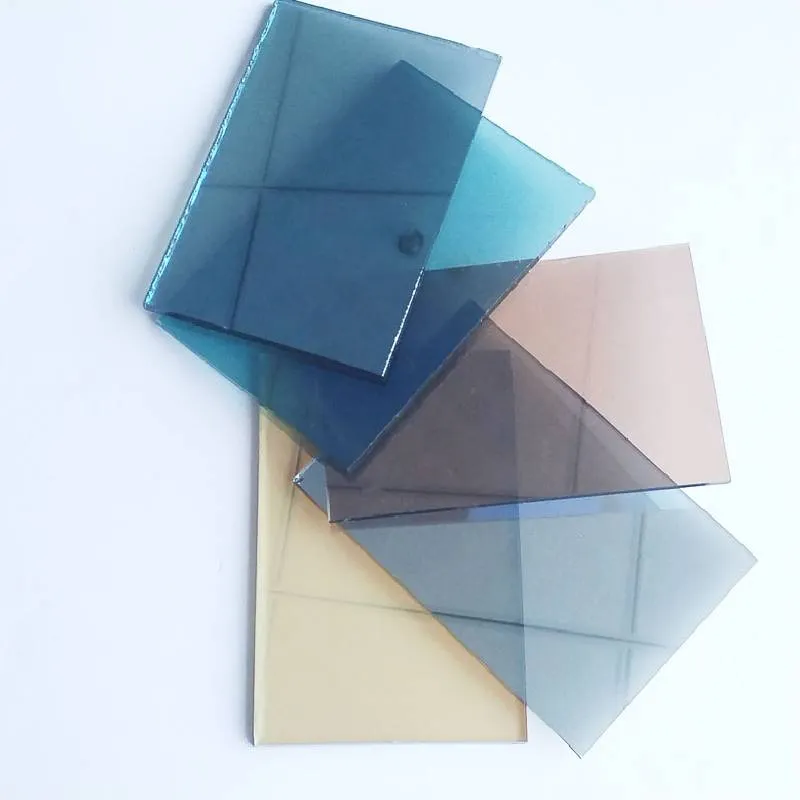Low Iron Glass Manufacturers A Gateway to Clarity and Precision
Low iron glass, renowned for its exceptional clarity and high light transmission, has become an essential material in various sectors, including architecture, automotive, and solar energy. Unlike traditional glass, which contains iron oxide that imparts a greenish tint, low iron glass boasts minimal impurities, making it an ideal choice for applications where transparency and aesthetics are paramount. This article explores the significance of low iron glass manufacturers, their contributions to various industries, and the technological advancements shaping the production of this remarkable material.
Understanding Low Iron Glass
Low iron glass contains significantly lower levels of iron oxide, resulting in a clearer and more transparent product. Typically, the iron content in standard glass can lead to distortions in color and light quality, which can be detrimental in applications such as display cases, interiors, and glass facades. By reducing the iron content, manufacturers produce glass that transmits over 91% of visible light, making it the optimal choice for projects that require high levels of brightness and color accuracy.
Applications of Low Iron Glass
The applications of low iron glass are diverse and continue to grow as technology advances. In the architectural sector, low iron glass is utilized for facades, skylights, and curtain walls, where visual appeal and light transmission are crucial. The trend towards larger glass surfaces in modern architecture can often result in the need for enhanced structural support, which low iron glass is particularly well-equipped to provide due to its strength and lightweight properties.
In the automotive industry, low iron glass is commonly used in vehicle windows and windshield designs. It not only decreases weight, contributing to improved fuel efficiency, but also enhances visibility for drivers and passengers alike. With the rise of electric vehicles, the demand for lightweight materials that can support sustainable practices is growing, making low iron glass an attractive option.
Another significant application is in solar energy technology. Low iron glass is used in solar panels where high transparency is essential for maximizing light absorption and conversion into energy. The photovoltaic industry benefits from low iron glass, as it allows for more sunlight to penetrate and be converted into electricity, which is vital for improving the efficiency of solar technologies.
low iron glass manufacturers
The Role of Manufacturers
Low iron glass manufacturers play a pivotal role in ensuring the availability and quality of this specialized product. These manufacturers invest in advanced melting and production technologies to achieve the required purity and optical specifications. The process typically involves sourcing high-quality raw materials and employing stringent quality control measures to monitor iron content and overall glass characteristics.
Leading manufacturers often collaborate with architects and engineers to develop customized solutions tailored to specific applications. This collaborative approach not only fosters innovation but also helps in addressing unique challenges that arise in various projects, such as durability requirements, thickness, and thermal performance.
Technological Innovations
The glass industry has witnessed significant technological advancements over the years, especially in the production of low iron glass. Innovations such as new melting processes, automated quality testing systems, and enhanced coating technologies have drastically improved the quality and performance of glass products. These advancements allow manufacturers to develop a wider range of low iron glass products, including laminated and tempered versions that enhance safety and security.
Sustainability has also become a focal point in the glass manufacturing sector. Many manufacturers are adopting eco-friendly practices, such as recycling glass cullet in the production process, which not only reduces waste but also lowers energy consumption. As the emphasis on sustainable construction continues to grow, low iron glass manufacturers are positioned to lead the market by promoting green building practices.
Conclusion
In conclusion, low iron glass manufacturers play a crucial role in providing high-quality, transparent glass solutions across multiple industries. With applications ranging from architecture to automotive and renewable energy, low iron glass stands as a testament to the advancements in glass technology. As manufacturers continue to innovate and focus on sustainability, the future appears bright for low iron glass, promising even greater clarity and environmental responsibility in the years to come.
 Afrikaans
Afrikaans  Albanian
Albanian  Amharic
Amharic  Arabic
Arabic  Armenian
Armenian  Azerbaijani
Azerbaijani  Basque
Basque  Belarusian
Belarusian  Bengali
Bengali  Bosnian
Bosnian  Bulgarian
Bulgarian  Catalan
Catalan  Cebuano
Cebuano  Corsican
Corsican  Croatian
Croatian  Czech
Czech  Danish
Danish  Dutch
Dutch  English
English  Esperanto
Esperanto  Estonian
Estonian  Finnish
Finnish  French
French  Frisian
Frisian  Galician
Galician  Georgian
Georgian  German
German  Greek
Greek  Gujarati
Gujarati  Haitian Creole
Haitian Creole  hausa
hausa  hawaiian
hawaiian  Hebrew
Hebrew  Hindi
Hindi  Miao
Miao  Hungarian
Hungarian  Icelandic
Icelandic  igbo
igbo  Indonesian
Indonesian  irish
irish  Italian
Italian  Japanese
Japanese  Javanese
Javanese  Kannada
Kannada  kazakh
kazakh  Khmer
Khmer  Rwandese
Rwandese  Korean
Korean  Kurdish
Kurdish  Kyrgyz
Kyrgyz  Lao
Lao  Latin
Latin  Latvian
Latvian  Lithuanian
Lithuanian  Luxembourgish
Luxembourgish  Macedonian
Macedonian  Malgashi
Malgashi  Malay
Malay  Malayalam
Malayalam  Maltese
Maltese  Maori
Maori  Marathi
Marathi  Mongolian
Mongolian  Myanmar
Myanmar  Nepali
Nepali  Norwegian
Norwegian  Norwegian
Norwegian  Occitan
Occitan  Pashto
Pashto  Persian
Persian  Polish
Polish  Portuguese
Portuguese  Punjabi
Punjabi  Romanian
Romanian  Russian
Russian  Samoan
Samoan  Scottish Gaelic
Scottish Gaelic  Serbian
Serbian  Sesotho
Sesotho  Shona
Shona  Sindhi
Sindhi  Sinhala
Sinhala  Slovak
Slovak  Slovenian
Slovenian  Somali
Somali  Spanish
Spanish  Sundanese
Sundanese  Swahili
Swahili  Swedish
Swedish  Tagalog
Tagalog  Tajik
Tajik  Tamil
Tamil  Tatar
Tatar  Telugu
Telugu  Thai
Thai  Turkish
Turkish  Turkmen
Turkmen  Ukrainian
Ukrainian  Urdu
Urdu  Uighur
Uighur  Uzbek
Uzbek  Vietnamese
Vietnamese  Welsh
Welsh  Bantu
Bantu  Yiddish
Yiddish  Yoruba
Yoruba  Zulu
Zulu 

